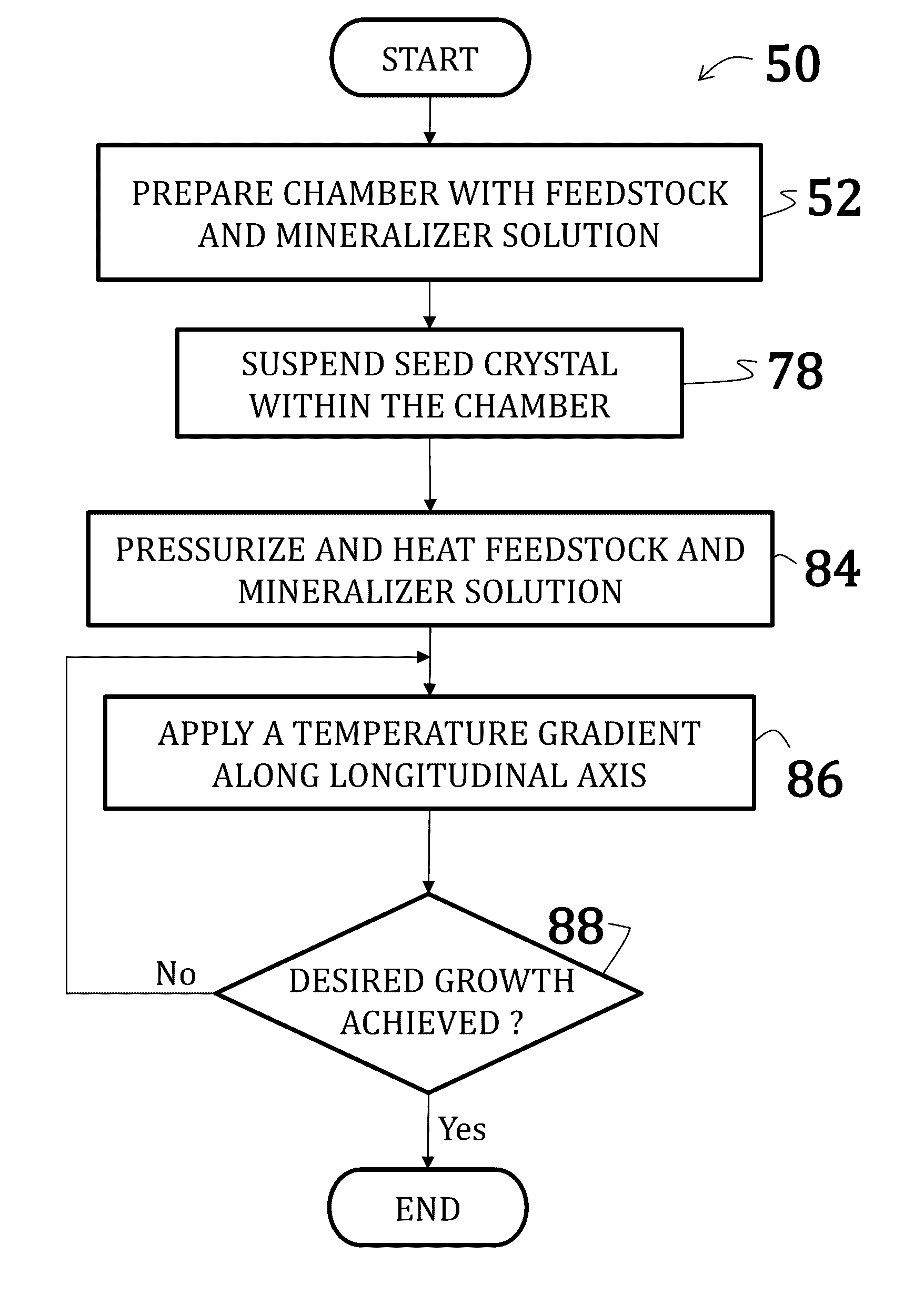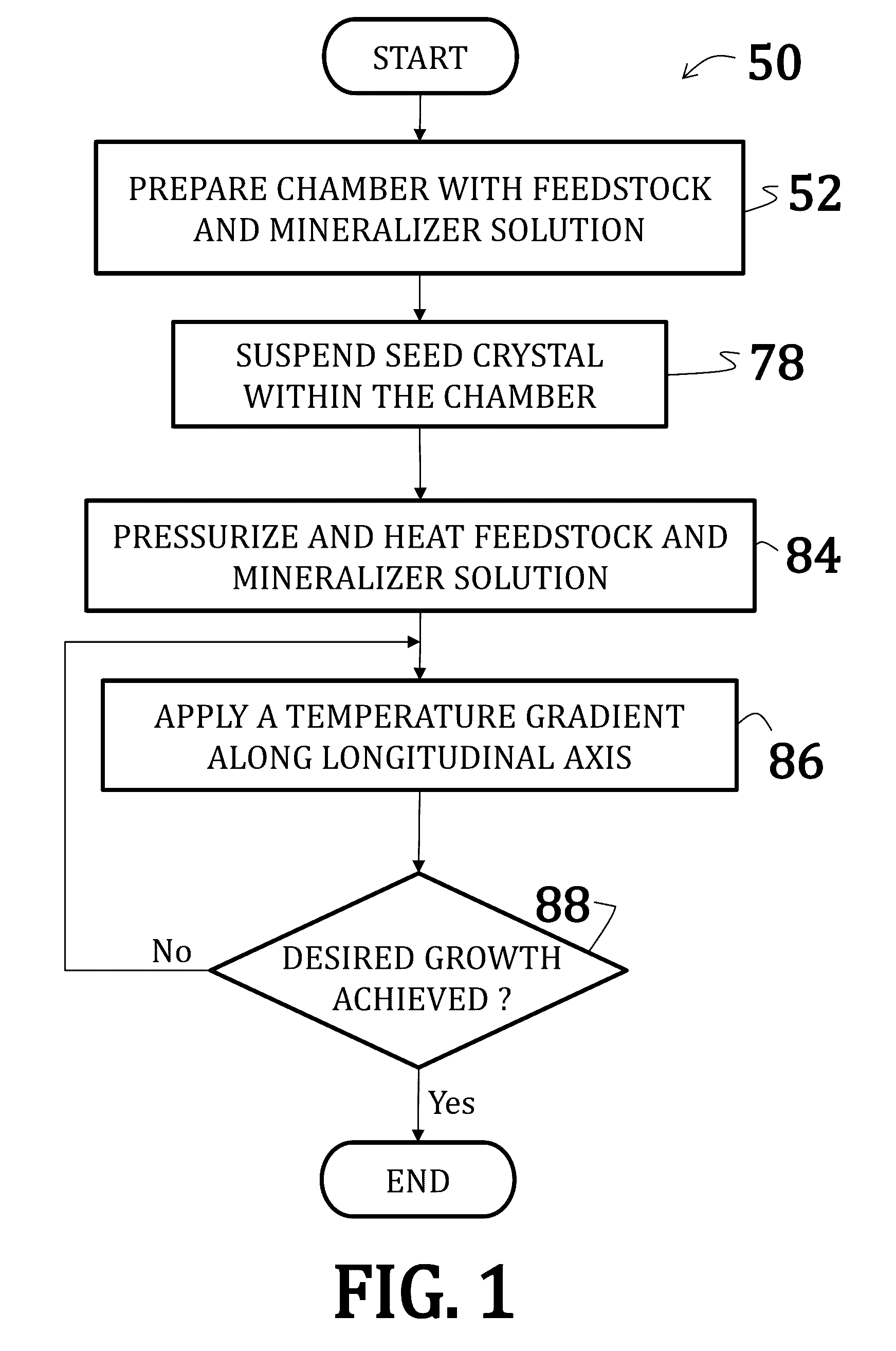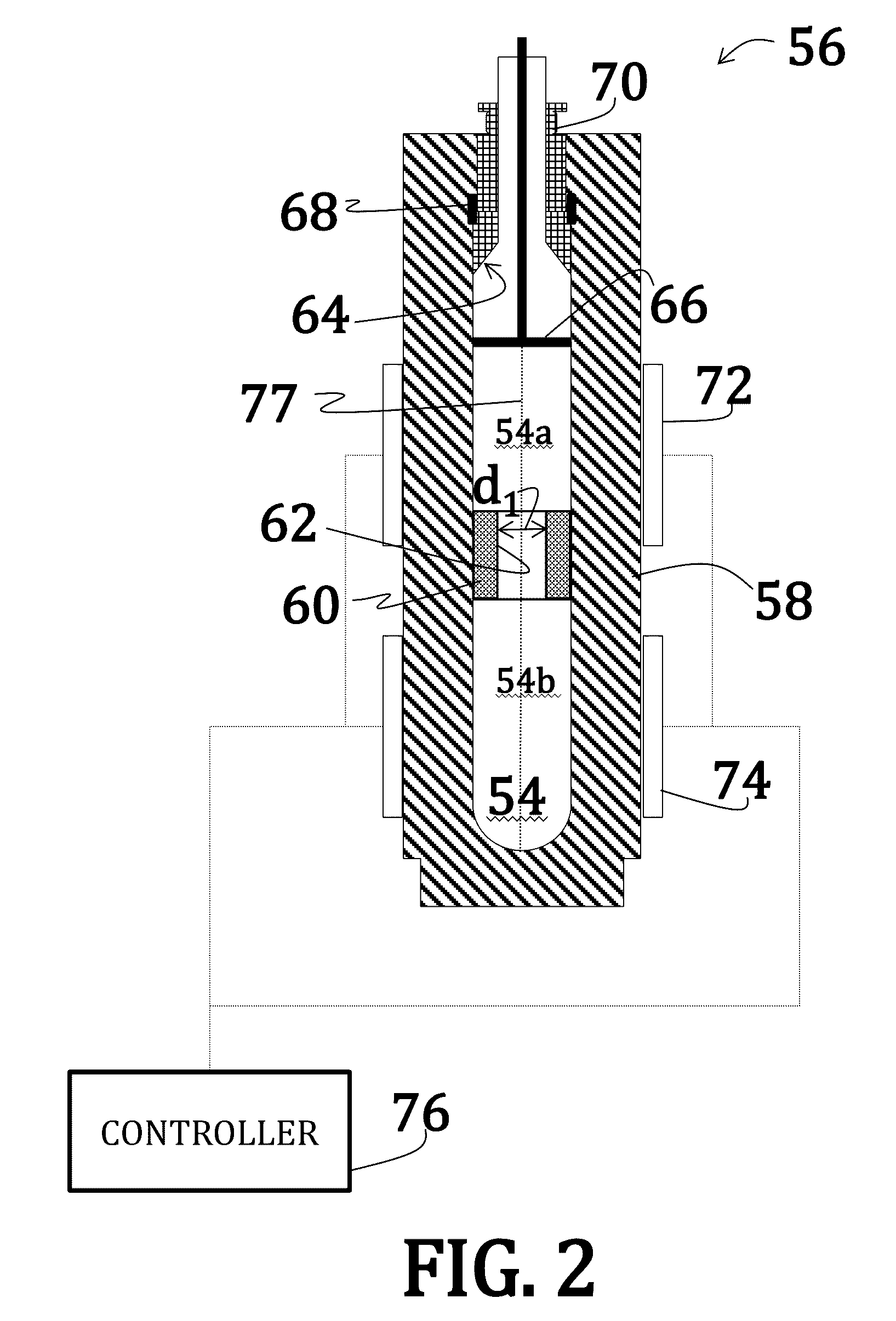Alkali uranium fluorophospahte-based crystals and methods of fabrication
a technology of uranium fluorophosphate and crystals, which is applied in the direction of uranium compounds, uranium oxides/hydroxides, polycrystalline material growth, etc., can solve the problems of borosilicate glass material, synthesis of single crystals of actinide phosphate, and failure of single crystal synthesis of these new materials
- Summary
- Abstract
- Description
- Claims
- Application Information
AI Technical Summary
Benefits of technology
Problems solved by technology
Method used
Image
Examples
example 1
[0055]Uranium dioxide crystals were synthesized by placing a powdered or polycrystalline nutrient / feedstock of UO2 in a lower heating zone of a silver ampoule. A seed crystal of UO2 was suspended in the upper heating zone of the ampoule on a seed rack, similar to the embodiment illustrated in FIG. 6. A 6 M cesium fluoride mineralizer solution was added to fill 70% of the ampoule. A baffle comprising a precious metal was positioned between the lower heating zone and the upper heating zone of the ampoule. The ampoule was then welded shut and placed within a reaction chamber with water (enough to the 75% to 80% fill level) of an autoclave (similar to the embodiment illustrated in FIG. 5).
[0056]Band heaters on the autoclave were operated to maintain the lower heating zone at about 600° C. and the upper heating zone at about 550° C. A growth pressure of about 25,000 psi was maintained. Growth continued for 14 days.
[0057]New growth of UO2 crystalline material was deposited on the seed cry...
example 2
[0058]Uranium dioxide crystals were synthesized by placing a powdered or polycrystalline nutrient / feedstock of UO2 in a lower heating zone of a silver ampoule. A 9 M cesium fluoride mineralizer solution was added to fill 70% of the ampoule. A baffle comprising a precious metal was positioned between the lower heating zone and the upper heating zone of the ampoule. The ampoule was then welded shut and placed within a reaction chamber with water (enough to the 75% to 80% fill level) of an autoclave (similar to the embodiment illustrated in FIG. 5).
[0059]Band heaters on the autoclave were operated to maintain the lower heating zone at about 650° C. and the upper heating zone at about 600° C. A growth pressure of about 25,000 psi was maintained. Growth continued for 7 days.
[0060]Resultant and spontaneously nucleated UO2 crystals were approximately 0.25 mm in size.
example 3
[0061]Uranium dioxide crystals were synthesized using a CaF2 seed crystal. The orientation of the seed crystal may vary, but may generally be (100) and (111) and, preferably, (110). Additionally, a miscut of ranging from 2° to about 4° may be used where the nominal orientation is (100), (111), or (110). Synthesis occurred according to the method of Example 1; however, no thermal gradient was applied—that, is, the entire reaction was maintained at an isothermal temperature of 650° C. Moreover, as the reaction was isothermal, no baffle was used.
[0062]The CaF2 seed crystal was suspended slightly above the UO2 feedstock such that UO2 nutrients could dissolve into the feedstock prior precipitation onto the seed crystal.
PUM
 Login to View More
Login to View More Abstract
Description
Claims
Application Information
 Login to View More
Login to View More - R&D
- Intellectual Property
- Life Sciences
- Materials
- Tech Scout
- Unparalleled Data Quality
- Higher Quality Content
- 60% Fewer Hallucinations
Browse by: Latest US Patents, China's latest patents, Technical Efficacy Thesaurus, Application Domain, Technology Topic, Popular Technical Reports.
© 2025 PatSnap. All rights reserved.Legal|Privacy policy|Modern Slavery Act Transparency Statement|Sitemap|About US| Contact US: help@patsnap.com



